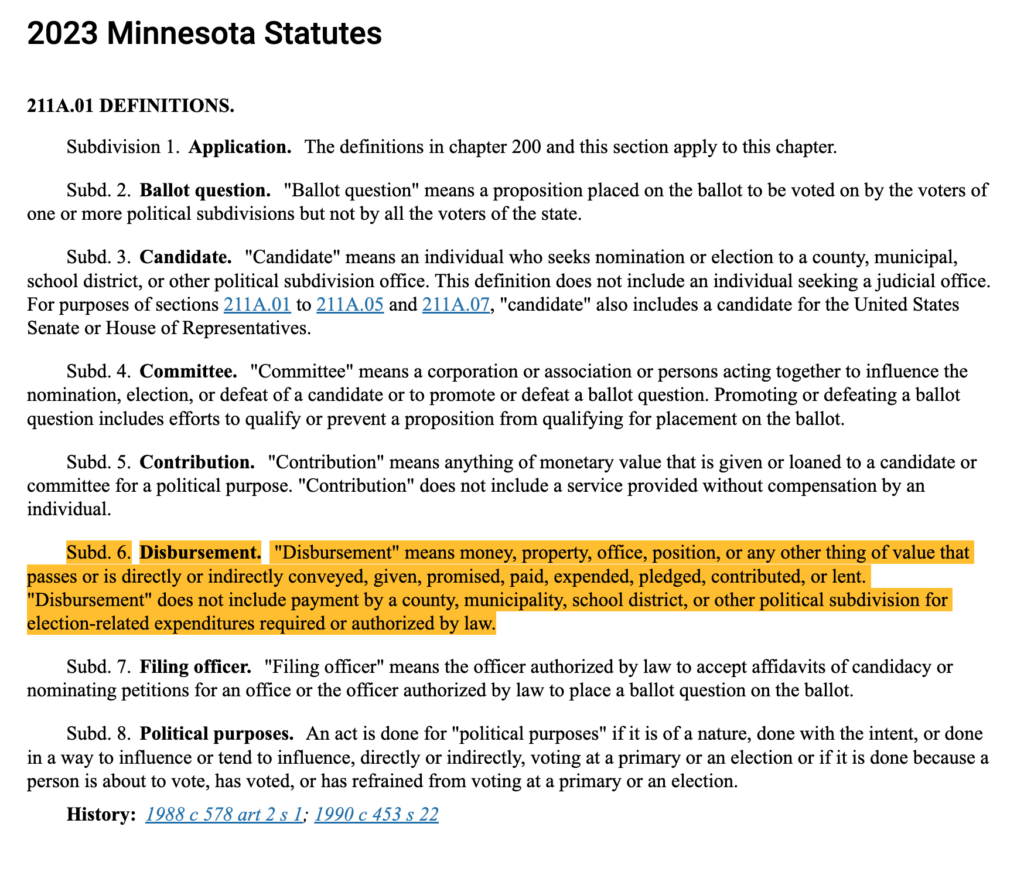Teacher’s union caught lying and cheating in school board races
The Office of Administrative Hearings (OAH) recently fined Dakota County United Educators, a local chapter of the state teacher’s union, for failing to report campaign expenditures in a timely fashion. This is the second election in a row a local affiliate of Education Minnesota has been fined for the same exact violation (the Lakeville teacher’s union was fined $500 for failing to report expenditures in the 2022 election).
According to the judge’s order, Education Minnesota has been advising their local affiliates to knowingly and willfully violate state campaign finance law when filing reports about spending in local school board races. The smoking gun for this illegal behavior came in the form of an email from the state union advising local chapters “if you have not received invoices yet, you do not need to file until you receive them.” Since Education Minnesota was the “vendor” in these cases, they would purposefully wait until after the election to invoice the local unions for campaign expenditures, thus hiding them from their opponents and the public.
As the judge pointed out, the union’s practice is a blatant violation of state law, which requires candidates and committees to report expenditures when they are “promised” or “pledged.”

Dakota County United Educators hid $36,000 of spending on postcards, flyers and lawn signs until after the election.
As the dust settles on the 2023 school board elections, and more local unions are exposed for hiding expenditures from the public based on Education Minnesota’s illegal advice, when does this become a conspiracy?
Teachers are always at the top of the list of most respected professions, but how long will that last in Minnesota when their state leadership continues to cheat and lie during election season with their win-at-all-cost mentality? Perhaps this is one of the reasons teachers are leaving the state union at such an alarming rate.
Wild, Wild West of Local Campaigns
As candidates and outside groups continue to spend more and more on local campaigns, one thing has become clear: campaign finance for county, city and school board candidates in Minnesota is an unregulated mess. The Minnesota statute book has an entire chapter (10A) dedicated to governing legislature and statewide elections. There is also a state agency called the Minnesota Campaign Finance and Public Disclosure Board set up to monitor the campaign donations and spending for state races. Meanwhile, campaigns for local government offices have very few reporting rules and rely entirely on the honor system for compliance — no single agency oversees these campaigns or their reporting.
You only have to spend ten minutes looking at local election reports (filed with the school board, city or county government) to find glaring irregularities and violations of law. Outside of political opponents or campaign finance nerds like me, no one ever looks at campaign finance reports for local races. There is no state or local agency charged with compliance. If a violation occurs, someone has to file a complaint with an administrative law judge who will determine probable cause, hold a hearing and then make a decision. Sometimes that decision includes a modest fine, like the two examples above.
There are some campaign finance rules for local races, mostly involving contribution limits and a loose reporting schedule. The underlying principle in all campaign finance rules is transparency. Campaigns are required to share with the public where their money comes from and how they are spending it. For most local races, the contribution limit is $600 per person and as soon as you receive or spend $750, you have 14 days to file a public report. After that initial report, a candidate is expected to file reports 10 days before the primary, 10 days before the general election and 30 days after a general. Again, no state or local agency will notice if you are late or if you even bother to file a report at all.
Education Minnesota is not the only entity breaking campaign finance laws in local elections. Watch for a follow up piece with more examples next week.